Filter by
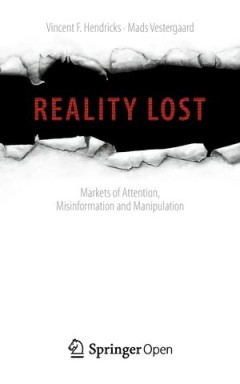
Reality Lost: Markets of Attention, Misinformation and Manipulation
Attention Economics; Conspiracy Theory; Philosophy; Democracy; Information; Digital Authority; Digitial Slavery; Donald Trump; Information Age; Misinformation; Politics; Populism; Social Media
- Edition
- -
- ISBN/ISSN
- 9783030008123
- Collation
- -
- Series Title
- -
- Call Number
- 791 VES r
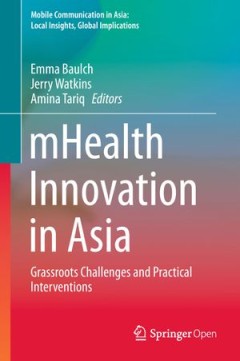
Mhealth innovation in Asia: Grassroots Challenges and Practical interventions
mHealth Innovation in Asia; mHealth Initiatives and Policy; Grassroots mHealth Projects in Asia; Practical mHealth Interventions in Asia; Structures and Infrastructures of mHealth in Asia; Mobile Health; Health and Wellbeing; Media and Communications; Development Studies on Public Health; Community Health Workers; Mobile Phones in Health
- Edition
- -
- ISBN/ISSN
- 9789402412505
- Collation
- -
- Series Title
- -
- Call Number
- 791
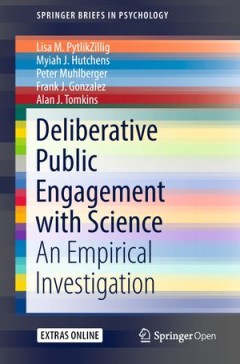
Deliberative Public Engagement With Science: An Empirical investigation
experimental manipulations of deliberative engagement; nanotechnology public policy issues; education-oriented communications; experimental social science; science, technology and society; innovation policy; cognitive-affective engagement; polarization of public attitudes
- Edition
- -
- ISBN/ISSN
- 9783319781594
- Collation
- -
- Series Title
- -
- Call Number
- 791 MUH d
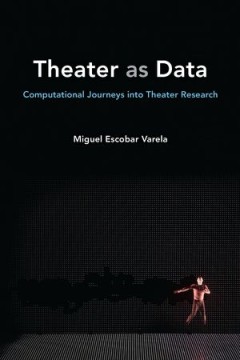
Theater as Data: Computational Journeys into Theater Research
In Theater as Data, Miguel Escobar Varela explores the use of computational methods and digital data in theater research. He considers the implications of these new approaches, and explains the roles that statistics and visualizations play. Reflecting on recent debates in the humanities, the author suggests that there are two ways of using data, both of which have a place in theater research. D…
- Edition
- -
- ISBN/ISSN
- 9780472128631
- Collation
- -
- Series Title
- -
- Call Number
- 792 VAR v
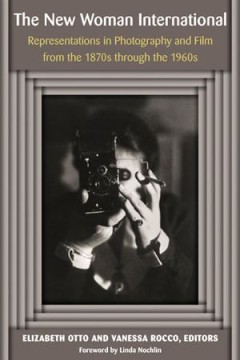
The New Woman International: Representations in Photography and Film from the…
Images of flappers, garçonnes, Modern Girls, neue Frauen, and trampky—all embodiments of the dashing New Woman—symbolized an expanded public role for women from the suffragist era through the dawn of 1960s feminism. Chronicling nearly a century of global challenges to gender norms, The New Woman International: Representations in Photography and Film from the 1870s through the 1960s is the …
- Edition
- -
- ISBN/ISSN
- 9780472900367
- Collation
- -
- Series Title
- -
- Call Number
- 791.43 NEW n
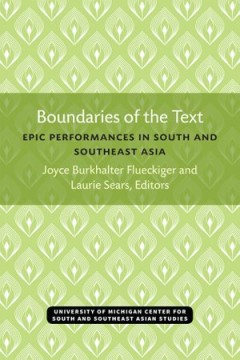
Boundaries of the Text: Epic Performances in South and Southeast Asia
When the Mahabharata and Ramayana are performed in South and Southeast Asia, audiences may witness a variety of styles. A single performer may deliver a two-hour recitation, women may meet in informal singing groups, shadow puppets may host an all-night play, or professional theaters may put on productions lasting thirty nights. Performances often celebrate ritual passages: births, deaths, marr…
- Edition
- -
- ISBN/ISSN
- 9780472901715
- Collation
- -
- Series Title
- -
- Call Number
- 791 BOU b

Animal Acts: Performing Species Today
We all have an animal story—the pet we loved, the wild animal that captured our childhood imagination, the deer the neighbor hit while driving. While scientific breakthroughs in animal cognition, the effects of global climate change and dwindling animal habitats, and the exploding interdisciplinary field of animal studies have complicated things, such stories remain a part of how we tell the …
- Edition
- -
- ISBN/ISSN
- 9780472901104
- Collation
- -
- Series Title
- -
- Call Number
- 792 ANI a

The Witch and The Hysteric: The Monstrous Medieval in Benjamin Christensen'S …
Benjamin Christensen’s 1922 Swedish/Danish film Häxan (known under its English title as Witchcraft Through the Ages) has entranced, entertained, shocked, and puzzled audiences for nearly a century. The film mixes documentary with fantasy, history with theatrics, religion and science, the medieval past and modern culture. This uncanny content is compounded by the film’s formal strangeness, …
- Edition
- -
- ISBN/ISSN
- 9780692230152
- Collation
- -
- Series Title
- -
- Call Number
- 791.43 DOT w
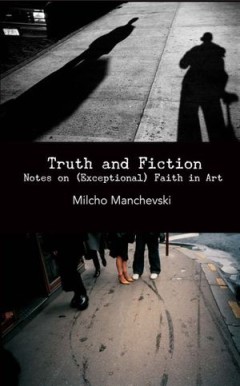
Truth and Fiction: Notes On (Exceptional) Faith in Art
Reflecting upon his experience making his 2010 feature film Mothers, a cinematic triptych interweaving three narratives that are each, in their own way, about the often tenuous lines between truth and fiction, and one of which actually morphs into a documentary about the aftermath in a small Macedonian town where three retired cleaning women were found raped and killed in 2008 and the murderer …
- Edition
- -
- ISBN/ISSN
- 9780615647104
- Collation
- -
- Series Title
- -
- Call Number
- 791.43 MAN t
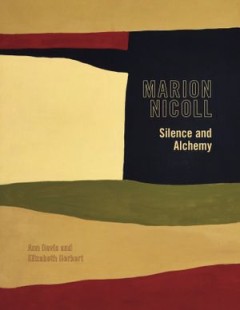
Marion Nicoll : Silence and Alchemy
Marion Nicoll (1909 1985) is a widely acknowledged and important founder of Alberta art and certainly one of a dedicated few that brought abstraction into practice in the province. Her life and career is a story of determination, of dedication to her vision regardless of professional or personal challenges. Nicoll became the first woman instructor hired at the Provincial Institute of Art and Te…
- Edition
- -
- ISBN/ISSN
- 978-1-55238-757-3
- Collation
- -
- Series Title
- Art in profile
- Call Number
- 759.11 DAV m
 Computer Science, Information & General Works
Computer Science, Information & General Works  Philosophy & Psychology
Philosophy & Psychology  Religion
Religion  Social Sciences
Social Sciences  Language
Language  Pure Science
Pure Science  Applied Sciences
Applied Sciences  Art & Recreation
Art & Recreation  Literature
Literature  History & Geography
History & Geography